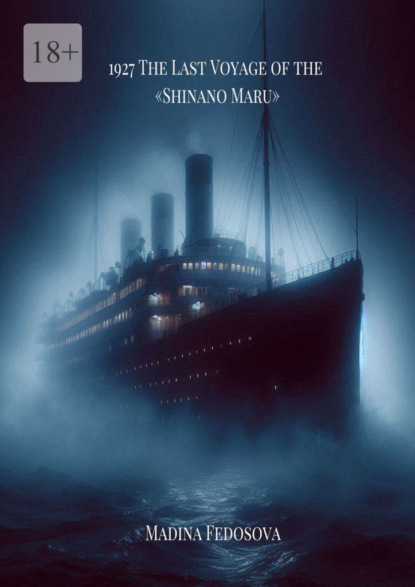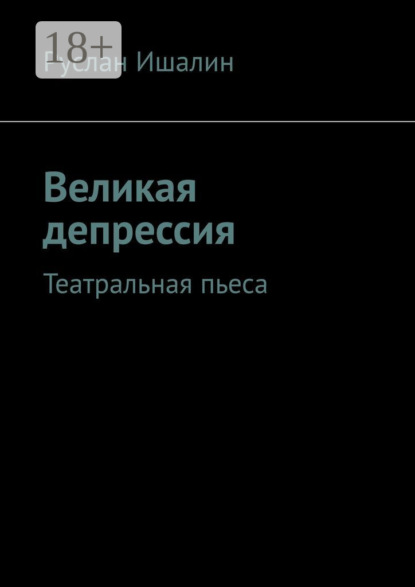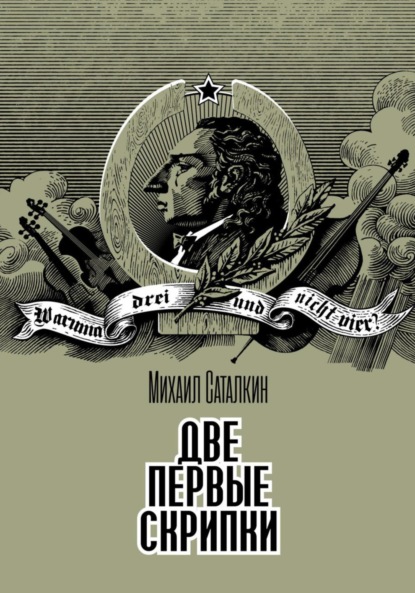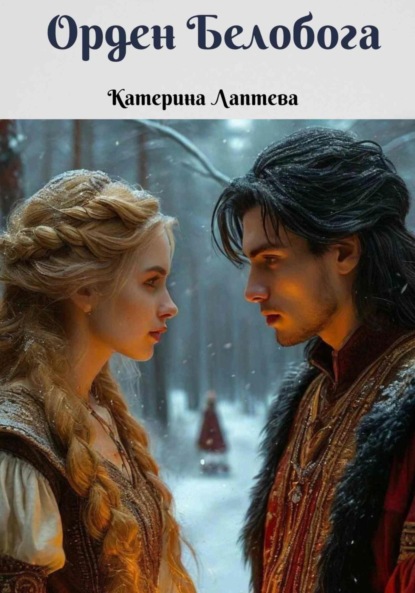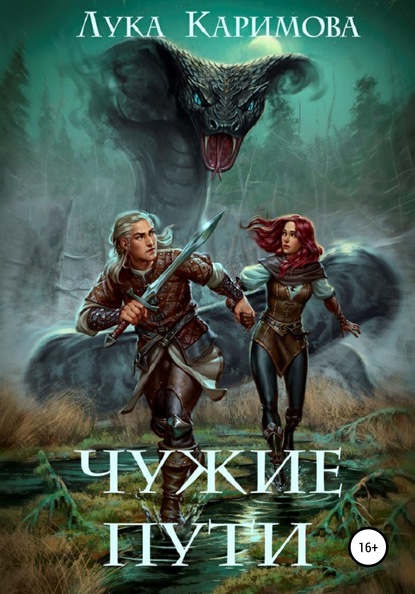- -
- 100%
- +
“Ah, youth!” the proprietress snorted, deftly wrapping the cake in a bamboo leaf. “My grandfather lived to ninety-three, eating salted plums every day and washing them down with rice sake!” She angrily tapped the edge of the brazier with her spatula. “And now these new doctors from the Tokyo University…”
Her monologue was interrupted by the ring of the door. A young couple entered the shop – he in a fashionable European suit, she in a newly designed kimono with shortened sleeves.
“Two coffees, please!” the young man chirped, adjusting his tie.
O-Fuji paused for a moment: “Coffee? That’s at the ‘Cafe Paris’ across the street, young man. We have real Japanese tea here.”
At the neighboring table, the old fisherman Ueda, a regular customer, laughed loudly: “Ha! More ‘modern youth’! In my day…”
On the Street:
Morning Tokyo was awakening like a huge beast stretching after a long sleep. Rickshaw pullers in patched jinbei were already bustling through the streets, their bare feet slapping on the wet asphalt, leaving tracks on the freshly washed sidewalks.
The crowd in front of the new electric display resembled a flock of sparrows near a rice field. The advertisement flickered on the screen: “A MIRACLE OF MODERNITY! The ‘National’ vacuum cleaner, model J-12—only 85 yen on installment for 12 months! Rid your home of dust, as civilized people do!”
A young woman in a hybrid outfit – a violet kimono with shortened sleeves and a Parisian handbag – gasped, covering her mouth with a fan advertising a bank:» —85 yen! That’s… – she quickly counted on her fingers – almost half of my Kenji’s salary from the weaving factory!”
Her companion, a young man in an ultra-modern English suit with narrow trousers, wrinkled his nose disdainfully:» – But no dust! Every housewife in America has one. Even the maids! – » He nervously adjusted his tie, on which a gold anchor-shaped pin was displayed. “If your husband worked at my firm…”
“Progress is when old people stop understanding what the birds are singing outside their windows, and children forget the smell of real rain.”
(From the diary of teacher Suzuki, found in the ruins after the earthquake)
At the Old Well:
The blind Ito sat on the edge of the well, built during the Meiji era. His black glasses – a gift from a German doctor in 1904—reflected the crowd like two small mirrors, showing the world upside down.
“ – Ito-san! You today… – » Takeshi began, but the old man raised his hand, stopping him.
“ – Hush, boy. Listen closely. – » His wrinkled face tensed. “Do you hear how their new shoes squeak? How their heels tap on the stones? Each step says: “We are different. We are better’.”
He ran his fingers over his empty shamisen, on the deck of which the traces of blood from Port Arthur were still visible:
“ – When I was a boy, my teacher, the old monk from Sensō-ji temple, used to say: ‘A person without roots is like a lantern without a flame. It may shine beautifully, but it will never warm the soul’.”
Takeshi’s Reflections: “Strange… This city is becoming like those Western pictures from magazines – bright, noisy, but… somehow flat. As if something important is hiding behind all these new things, something we are gradually losing.”
His fingers felt the silk string in his pocket – the last thread connecting him to another Tokyo, the city of his childhood.
Chapter 3
Shadows and Ash: Tokyo, 1946
Ginza District, January 1946. 6:17 AM.
The city was waking up slowly, like a heavily wounded soldier after surgery without anesthesia. The fog – thick, milky, permeated with the smell of smoldering wood and decaying flesh – enveloped the ruins like a shamefaced shroud. It hid what no one wanted to see: charred beams protruding from piles of rubble like a dead man’s ribs; children’s toys covered in ash; the empty eye sockets of windows in half-destroyed buildings.
The air was filled with contradictory smells:
The acrid haze from the still smoldering ruins – some buildings had been burning for eight months already, as if refusing to acknowledge the end of the war.
The sweetish-putrid smell of the black market “kitchens” – where they were cooking soup from bark, rats, and American tin cans washed in the Sumida River.
The metallic tang of blood and rust – left on the tongue by the ruins of the factories, where weapons for the Emperor had recently been forged.
The pungent aroma of the cheap “Golden Peacock” tobacco – a postwar surrogate made from chestnut leaves and waste paper.
Takeo, a former sergeant of the 23rd Infantry Regiment, sat by a broken fountain, which had once been the pride of the area. Now it was just a pile of marble fragments, covered in obscene graffiti in English. His greatcoat – once dark green, the pride of the Japanese soldier – now hung on him like on a hanger, burned by acid rains and faded to a dirty gray color.
He reached out automatically with his right hand to adjust his collar – and again felt the phantom pain in his missing limb. He had lost the arm not in battle, but in a Hiroshima hospital, when American surgeons were cutting into him without anesthesia.
In his pocket lay a letter from his mother from the village in Niigata Prefecture:
“Son, come home. At least we have potatoes. We sold the old samurai house for three sacks of rice, but the garden is still ours. I’ve saved your childhood books…”
The letter was dated October. Now it was January.
Takeo’s thoughts: “A train ticket costs 200 yen. My monthly ration is 150. I could, of course, go to the black market, sell my medal for bravery… But then what will be left of me?”
He pulled out a tattered photograph from his inner pocket – their entire platoon, taken in Manchuria in 1943. Out of twenty men, only he had survived.
Philosophical quote: “When an empire dies, the heroes disappear first. Then – the memory of them. And those who remembered what they died for are the last to perish.” (Inscription on the wall of a burnt-down post office in Tokyo)
The Black Market near Ueno Station
The crowd at “Ameyoko” swarmed like ants around a ravaged anthill. This spontaneous market, which sprang up near the walls of the destroyed station, lived by its own brutal laws. The air here was a thick cocktail of:
The sour smell of “bread,” in which third-rate flour mingled with birch sawdust and a yellowish powder of unknown origin – this mixture was proudly called “food additive No. 7” by the occupation authorities.
The sweetish-putrid ambrosia from boxes of fish, which were caught in Tokyo Bay – where unidentified bodies had been lying just a month ago.
The acrid scent of American cigarettes, which had become the new currency – a pack of “Lucky Strike” cost more than a teacher’s monthly salary.
The pungent smell of human despair – sweat, tears, and blood, etched into clothing over years of war.
Stall 12: “The Bread Shop”
Twelve-year-old merchant Koichi, whose face was lined with wrinkles like an old man, threw a loaf of strange yellow bread onto the counter. His voice, not yet formed but already devoid of childlike resonance, cut through the market din:
“Three hundred yen! Today with real American flour! Last batch!”
Former teacher Yoshida, whose once-delicate fingers, which knew how to draw complex characters on the blackboard, were now covered in sores from hunger, sharply grabbed the loaf. She broke the bread, exposing black streaks of mold, and a grimace distorted her gaunt face:
“This is… this is death in a loaf!”
Koichi shrugged indifferently, quickly hiding the money in a hidden pocket of his ragged trousers:
“Yesterday’s death was with green spots. Today’s will just deprive you of your sight. But the choice is yours, teacher. Hunger isn’t a bad killer either.”
Stall 17: “American Gifts”
A woman in her forties, dressed in a kimono remade from parachute silk (the only reminder of the air raids), arranged cans on the counter. Her movements were precise and deliberate – naturally, a former nurse in the Imperial Army knew a thing or two about order.
“Real canned stew! Without labels, but…” – she glanced around and lowered her voice – “see this code C-456? It means ‘top-grade beef’. For special guests.”
Old fisherman Matsuda, whose hands were covered with scars from nets and shrapnel, spat on the ground:
“Last month, this ‘top-grade’ stuff sent three people from our barracks to the other world. Their bellies swelled up like fish washed ashore.”
The woman, without batting an eye, pulled out another can, on which “US Army” was barely readable: “Then take this one. Personally verified by me. My children ate it – they’re alive.”
Barrack 5 for Displaced Persons
Doctor Sato, whose white coat had turned into a patchwork quilt of dirt, blood, and medicinal stains, knelt before a dying old man. His medical bag contained only:
Empty vials of penicillin
Dirty bandages that had been washed in river water for the fifth time
A bottle of sake with a half-erased inscription “For the Imperial Army”
“I have no medicine. Not even clean bandages,” – his voice sounded tired, but without reproach. “All I can offer is sake. At least it will ease the pain.”
The old man, a former shamisen maker, whose hands had once created instruments for the imperial theater, smiled weakly: “In my village… the cherry blossoms… they must be blooming now…” – his fingers clenched a piece of string – all that remained of his last instrument.
The doctor turned away, but Takeo, standing at the entrance, noticed his shoulders trembling. An hour later, the master died, and the string in his hands made a soft sound, like a farewell chord.
“When a culture dies, first the musical instruments disappear. Then – those who knew how to play them. In the end – those who still remember their sound.” (From an unknown diary, found in the ruins of Osaka)
Street Scene
An American Willys MB jeep roared through a puddle near the bombed-out post office, sending up a wave of dirty water. Splashes mixed with motor oil and ash crashed over the crowd standing in line for rations. A woman in a remade parachute kimono shrieked, covering her face with her hands – water had gotten into the can labeled “US ARMY. CORNED BEEF. 1944,” which she was saving for her sick daughter.
“Catch, jap!” yelled a red-headed sergeant from the jeep, throwing several Hershey’s chocolate bars into the crowd. One of them, wrapped in a bright red wrapper with white stars, fell right into the puddle, where Lucky Strike cigarette butts and rusty shell casings floated.
Seven-year-old Ken, in tattered zori (straw sandals), darted forward. His fingers were almost grasping for the chocolate when old teacher Ito (now without his glasses – one lens had broken during the bombing, the other he’d sold for a bowl of broth) sharply grabbed his wrist.
“ – Don’t take it,” he whispered, and his voice, which had once resonated in university lecture halls, now sounded like a rusty door creaking. “Do you know what they put in this chocolate? Not just cocoa. There is something else… something that makes our children forget who they are. They are buying our souls piece by piece, Ken. First – for chocolate. Then – for jeans. And in the end – for empty promises.”
An American interpreter – a Japanese from Hawaii, in a perfectly ironed uniform with a “US ARMY INTERPRETER” patch – stepped out of the jeep. His Japanese sounded unnatural, like a gramophone recording with scratches:
“ – Demokrato! Demokrato wa, kodomo-ga tenpura o taberu koto desu!” (“Democracy – that is when children eat tempura!”) – he clearly mixed up his words, but the soldiers didn’t care. They laughed, filming on a Kodak Brownie as the Japanese children reached for the candy.
Takeo, standing in the shadows of the ruined wall, squeezed his medal – a photograph of his company in Manchuria, 1943. On the back was engraved the phrase: “A samurai dies only when he is forgotten.”
His thoughts: “We didn’t lose the war. We lost the right even to our pain. Our dead now have to die again – at the tribunals of the victors. They will be judged by those who dropped napalm on Tokyo and called it “liberation’.
Someone turned Hiroshima into a laboratory experiment and wrote in the report: “The results exceeded expectations’.”
Next to him lay a “Stars and Stripes” newspaper with the headline: “Japanese Joyfully Welcome American Liberators!” The photograph showed a crowd of smiling children. But Takeo knew the truth: this picture was taken in an American internment camp, where food was only given to those who “smiled” wide enough.
“The victors write history. The defeated – whisper it in the dark so that their children will not forget. But the paper on which the victors write is always made of the ashes of the defeated.”
(From the diary of Dr. Sato, found in the ruins of Nagasaki)
Dialogue at the Destroyed Fountain
Former Captain Kazumaru sat on the edge of the fountain, whose marble steps now resembled broken teeth. His fingers, once accustomed to holding binoculars on the destroyer’s bridge, trembled, unfolding an “Asahi” newspaper with a portrait of the Emperor in a Western suit. The ink imprinted on his palm, like a brand.
“ – Did you see?” his voice sounded hoarse, as if passed through a rusty pipe. “Our tenno… our living god… now just a balding man in round glasses. Like an accountant from Osaka.”
Takeo slowly raised the newspaper. The photograph was taken in the American style – harsh light, no respect. Emperor Hirohito stood next to MacArthur, and the difference in height (182 cm versus 160) seemed especially humiliating.
“ – No, Kazumaru-san,” he said finally, running his finger over the portrait. “Now we are all gods. Because only gods can die and continue to exist. Only deities survive their own deaths.”
The water in the fountain was rusty-brown, with iridescent streaks of machine oil. Takeo pulled out the medal – silver, with the engraved names of his fallen company. On the back was the inscription: “Honor does not die with the body.”
“ – Remember, the koi used to swim here?” he asked, looking at the murky water. “Gold, red, black and white… Children threw them bread. Now…”
The medal fell into the water with a soft splash. On the bottom were visible:
Fragments of American newspapers
Empty Coca-Cola cans
A chocolate wrapper with the inscription “Hershey’s – the taste of victory”
Kazumaru suddenly coughed – his lungs, poisoned by gases in Shanghai, couldn’t stand the Tokyo smog. When the attack passed, he whispered:
“ – They are rewriting history, Takeo. Our sacrifices, our spirit… everything is turning into an anecdote for their soldiers. Yesterday I saw a marine showing a Japanese girl a caricature of the Emperor.”
From a broken loudspeaker on a neighboring building, the first chords of “Tokyo Boogie” came. Takeo closed his eyes. In his memory, the words of the old teacher from the military academy surfaced:
“When a country is conquered, its future dies first. Then – its past. And the present becomes a ghost, wandering among the ruins.”
He lifted his head and saw a young Japanese woman in a dress with a full skirt pass by, laughing loudly with an American sergeant. Her laughter sounded unnatural, like the squeak of an unlubricated door.
“We have become shadows of our own history,” Takeo said. “But shadows are proof that light once existed.”
Somewhere in the distance, a siren wailed – a new, American-made fire engine. Kazumaru slowly tore the newspaper and threw the scraps into the fountain, where they soaked and turned into a shapeless mass, resembling the dough for black market “bread”.
“The victors write history in ink, the defeated – in blood. But there is a third history – that which is written with the tears of those who remember the truth. It cannot be published in any printing house.”
(Inscription found in the ruins of a library in Nagoya)
Chapter 4
Ashes and Cranes Tokyo
April 1946. 6:17 AM
The fog rose from the Sumida River in thick, milky clouds, reminiscent of the ghosts of those who found their death there during the March 1945 bombings. It slowly enveloped the ruins of the former Asakusa district, where only one of the thirteen temples had survived, and even that one stood like a wounded bird, with a collapsed roof and charred columns.
The air was thick with contradictory smells:
Burnt cherry blossoms – the three surviving trees, having endured the napalm, bloomed right out of the cracks in the concrete. Their petals, pink and delicate, fell on the rusty helmets of Japanese soldiers, which had turned into flower pots for weeds. An old man, a former gardener of the Imperial Palace, collected these petals in a tin can from American stew – “for tea,” as he whispered to himself.
Fresh printing ink – near Ueno Station, a Japanese man in a too-new suit was handing out “Stars and Stripes” newspapers in broken Japanese. On the front page – an article titled “New Democratic Values for Japan,” and next to it, in the corner, in small print: “Girls aged 18—25 needed for work in officers’ clubs. Knowledge of English is an asset.”
Roasted soybeans – an old woman in a faded kimono sat at the entrance to the station, a tin bowl with beans in front of her. “Five yen a handful,” she repeated monotonously. Her fingers, which had once skillfully painted boxes with mother-of-pearl paints, were now covered in cracks and burn marks.
“ – Sato-san, is it possible to sell beans at such a price?” called out her former neighbor, an old carpenter.
“ – Once, for five yen, I bought silk for embroidery,” she replied, without looking up. “Now, for five yen, you can buy either a handful of beans, or hope. Beans are more filling.”
An American jeep emerged from the fog, a voice booming from the loudspeaker:» – Attention! Today at 2:00 PM in Hibiya Park – distribution of humanitarian aid. Please bring your identification!”
The old woman slowly raised her head:» – Humanitarian aid… Last year, they called it bombs.”
“When conquerors come, they first take your land. Then – your language. And then they demand that you smile when you call them saviors.”
(Inscription on a piece of wall in Nagoya, October 1945)
The old woman’s thoughts: “My granddaughter now paints her lips like American actresses. My son is silent – since he returned from the front without legs. And I sit here and sell beans that I once used only for miso soup. The world has turned upside down, like a stone in a stream – and now we are all sliding across its wet surface, trying not to fall.”
The fog slowly dissipated, revealing the ruins to the sun. Somewhere in the distance a nightingale sang – the first this spring. His song sounded the same as it had a hundred years ago, when samurai in swords walked these streets, and not soldiers with chewing gum.
At the Corner of the Former Suzenji Avenue
Former Lieutenant Ishii Masaru, a graduate of the elite Naval Academy of the Imperial Fleet in 1938 (“Tsukikaze” course), stood frozen in the middle of a wasteland, where his family’s ancestral home had stood just six months ago. The three-hundred-year-old cedar beams, having survived the 1923 earthquake, were now just a pile of charred remains. His right hand involuntarily clenched into a fist – muscle memory still retained the exact weight of the katana “Koto-no-Mabuki,” passed down to him by his grandfather on his coming-of-age day.
Before him, a sheet metal sign hung on a leaning post:
“PLOT 456 FUTURE PARKING FOR DEMOCRATIC CULTURAL CENTER BY ORDER OF SCAP COMMAND VIOLATORS WILL BE PROSECUTED”
The letters “SCAP” (Supreme Commander for the Allied Powers) gleamed in the sun like new bayonets.
The wind played at his feet with a torn photograph – a wedding portrait of his parents in 1915, taken in the famous “Ueno Photo” studio (the one that photographed the family of Emperor Taisho). The lieutenant bent down, his fingers trembling – the family motto could be discerned on the back: “Loyalty is heavier than death.”
At that moment, a shadow slid across the ground:
“ – Mr. Officer, buy chocolate?”
Before him stood a boy of about ten in a tattered school uniform (in terms of cut – the former uniform of the prestigious “Gakushuin” school). He held a cardboard box with the inscription “Hershey’s – The Great American Chocolate”.
Ishii recognized him – in 1942, this boy and his mother had been selling dango near Ueno Station. Back then, his eyes had shone with childlike innocence. Now, a strange mixture could be read in them:
Hunger (from the blue shadows under his eyes)
Premature adulthood (from the lines around his mouth)
Cynical calculation (from the way he instantly assessed Ishii’s uniform)
“ – Where did you get… – » began the lieutenant.
“ – American uncle gave it to me!” The boy grinned unnaturally wide, displaying teeth whitened with some chemical. “They say I speak ‘Thank you, sir!’ well! I get two chocolates instead of one!”
Behind the child, on the wall, a piece of a war poster remained: “Ichioku Gyokusai!” (One hundred million – united front!). Now, over it, was daubed: “Drink Coca-Cola!”
The lieutenant turned away. In a puddle at his feet floated a fragment of the “Asahi” newspaper with the headline: “Emperor renounces divine status.” Next to it – a “Lucky Strike” cigarette butt with a half-erased logo.
Ishii’s thoughts: “We didn’t just lose the war. We lost the right to our own history. Now our children are learning not from the ‘Bushido Code’, but from Mickey Mouse comics. Our temples are becoming cinemas, our swords – scrap metal, and our souls – small change for a piece of chocolate.”
He suddenly remembered the words of his teacher in the academy, old Captain Togo:
“When a samurai loses his sword, he becomes a ronin. When a nation loses its soul – it becomes a colony.”
The boy, seeing that the deal wouldn’t happen, was already running to a group of American marines, shouting loudly:
“ – Hello! Chocolate! Good price!”
His voice rang out against the sound of the steamboat whistle, carrying away the last Japanese battle flags as trophies, to America.
At the “Erpi” Cinema (formerly “Nikkatsu”)
The line snaked along the sidewalk, paved with the remains of bricks from the burnt-down post office – the building where, just a year ago, a portrait of the Emperor in a carved black wooden frame had hung. Now, its facade bore a new sign with screaming Latin letters:
“TODAY: ‘TOKYO ROMANCE’ (USA, 1945). SPECIAL SCREENING FOR OUR JAPANESE FRIENDS!”
“ – Only five yen for a ticket!” – a young Japanese man in a cowboy hat (a gift from a sergeant in the 11th Airborne Division) pranced on a C-ration crate. “After the show – a draw for real Levi’s! The winner will get the jeans that General MacArthur himself wears!”
In the crowd stood 72-year-old O-Tama, the widow of a fisherman from Okinawa. Her kimono made of homespun silk (the last roll that survived the Naha bombing) was worn thin, but washed with such care that the folds shone like blades.
“ – Five yen… – » her fingers, scarred from fishing nets, clutched a small knot with three copper coins. “Last year, you could buy for this money:
10 sheets of nori (enough for a month of rice balls)
3 small bags of salt (to salt the fish for the winter)
A visit to the public bathhouse for the whole family (the last luxury before the coal furnaces destroyed the sento)
Next to her, 19-year-old Michiko, a former student of a girls’ high school, was fixing her “Veronica Lake” hairstyle – which was worn by the heroines in the American Life magazines, which were now sold on every corner. Her lips, painted with mascara (the only cosmetic available after the war), curled into a mocking smile:
“ – But now we have democracy, grandmother. Isn’t that more valuable than nori?”
Michiko’s thoughts: “Grandmother doesn’t understand. These jeans are a ticket to a new world. In a world where girls can watch movies without their father’s permission. Where the words ‘duty’ and ‘honor’ are not written in blood-drawn hieroglyphs.”
O-Tama slowly unfolded the knot with three roasted soybeans – her daily ration.


